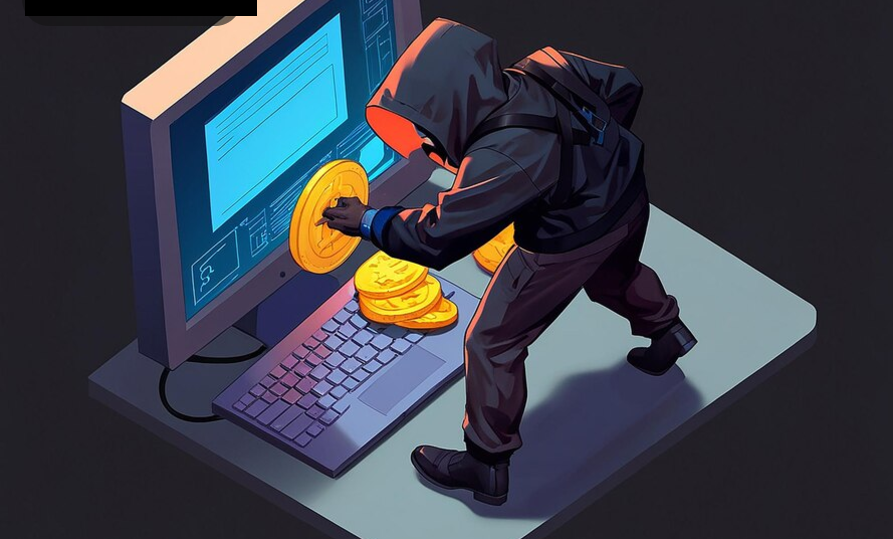“Why do you make payments using UPI?” What would be your answer to this question?
Pretty Obvious you would say to pay and receive money conveniently to remove the problem of cash payments.
What if this convenience comes at the cost of your savings or hard-earned money?
Your answer to the question would be an absolute NO!
Though UPI has enabled cashless transactions at your fingertips with a tap, it has also made it luring for fraudsters to exploit the loopholes of digital technology to siphon off crores from innocent users.
As per data by RBI, UPI transaction value has increased to ₹20.64 lakh cr. Similar to this the number of UPI frauds has amounted to around 7.25 lakh cases.
Scope of UPI Frauds in India
The UPI platforms are generally known for their simplicity and smooth cash transactions, but ironically the platform is emerging as a goldmine for fraudsters to dig out the money from the suspects.
According to the reports where UPI transactions were only 1.95 lakh amounting to ₹111 crore in 2020-21, with the increase use of digital currency this number has increased significantly.
From 8.86 bn in April 2023 to 15.04 bn in September end 2024 this rise in the volume of transactions has led to an increase in the value of fraud to ₹587 cr.
According to RBI data, the number of UPI frauds in the country almost doubled in 2023-24 to 13.42 lakhs. The amount diverted through fraud nearly doubled to ₹1087 crore.
Furthermore, from FY 2024-25 to September, the volume of UPI scams was 6.32 lakh, with a value of 485 crore.
Most affected States by UPI Frauds in India?
- Indian states like West Bengal, Odisha, Bihar, Assam, and northeastern states are affected most by the UPI frauds.
- 41% of the total frauds are reported from these states.
- Uttar Pradesh is the most affected Indian state in case of fraud.
- Odisha ranks at 18th reflecting a disturbing trend of rising cybercrime.
Why is Odisha a Hotspot?
The following reasons have made Odisha vulnerable to rising UPI frauds:
- Exposure to digital platforms: A low level of digital literacy and increased usage of the internet have made Odisha an easy target for scammers.
- Lack of Knowledge: Many users are still not aware of the use of online platforms safely despite government campaigns.
- Regional Disparity: Rural users are mostly unfamiliar with the emerging online platforms for banking making them an easy target for scammers.
Most Prominent Types of UPI Frauds in Odisha.
According to Odisha Police mainly three major types of fraud are used by Fraudsters to steal money from innocents:
1. Scammers Representing as a Bank or Tech Executives
- Fraudsters via telephonic conversation present themselves as the representative of a bank or tech company. They then offer to fix problems with smartphone or mobile banking apps.
- Convince and ask you to download a mobile app like “Any Desk” from the Play Store.
- The scammer will now get remote access to your mobile.
- The fraudster will ask you to provide the nine-digit code that is produced once you install the software (in this case, “Any Desk”).
- The scammer will then request more rights from you.
- The fraudster will take over your mobile device once they have been granted access.
- They then take your PIN and mobile banking credentials.
- The fraudster can now use your already-installed mobile app to conduct financial activities.
2. Hack Your UPI via SMS
- In this sort of UPI fraud, the fraudsters will send you an SMS. Post that they instruct you to forward it to a certain cell number from your phone.
- On this basis, the fraudster can link/register your mobile number/account with UPI on his mobile device.
- The fraudster will then request your confidential account details such as the debit card number, PIN, expiration date, and OTP.
- Using all the above details he will then create the MPIN, and use it for authenticating the transactions.
3. Scammers Send ‘Collect Request’ on Your Device
- In this scam, fraudsters use different strategies.
- They will send a “Collect request” to your VPA and ask you to authenticate it on the respective UPI apps to receive refunds.
- Assuming you would receive credit or reimbursement in your account, you authorize the request by authenticating the transaction with MPIN [only known to you].
- However, you may end up losing money. This is because you grant the collection request by following scammer’s instructions.
How to Protect Yourself from Such Scams?
Vigilance and educated practices are both necessary to prevent UPI fraud:
- Avoid Giving Sensitive Information: Never share your passwords, OTP, or UPI PIN over the phone or by messaging with anyone whether the person claims to be a government or bank official.
- Verify Apps and Links: Avoid clicking on unknown links and only download UPI apps from the approved platforms. Immediately uninstall apps like “Any Desk”.
- Employ Robust Security Measures: For extra security, turn on two-factor authentication. Enable app locks on mobile banking or payment apps.
- Regularly review transactions: Keep an eye on your account activity to quickly identify any illegal transactions.
- Report UPI Frauds: In case you have fallen victim to a UPI scam, take immediate action. Register with us and get assistance in filing a complaint and guidance in getting recovery of losses.
What Actions to Take if You Fall Victim to Fraud?
Quick reporting of the fraud can help minimize your losses and improve the chances of recovery. Follow the below-mentioned steps:
- Gather evidence: Save screenshots of all communication, details of contact, links used for making payments, and bank transactions as proof for the investigation.
- Freeze your Bank Account: Immediately ask the bank to block any further transactions from your account.
- File a complaint: Lodge an FIR with the nearest police station or report online on the cybercrime portal.
Conclusion
The rising trend in UPI fraud has resulted in a huge loss exceeding almost ₹1087 crores. For every user using digital platforms for UPI transactions, it is a stark reminder to be cautious and carefully proceed with the transactions.
Simple actions like using passwords, not sharing OTPs, not clicking on unknown links, and reporting suspicious activity can act as a shield to protect yourself from fraudsters.
As the country is heading towards a cashless economy, with the combined effort of both the public and government the surge in fraud can be limited to an extent.
If you have been a victim of financial fraud and looking for help to report your case, fill in your contact details below and our team will provide you assistance in reporting the case.







